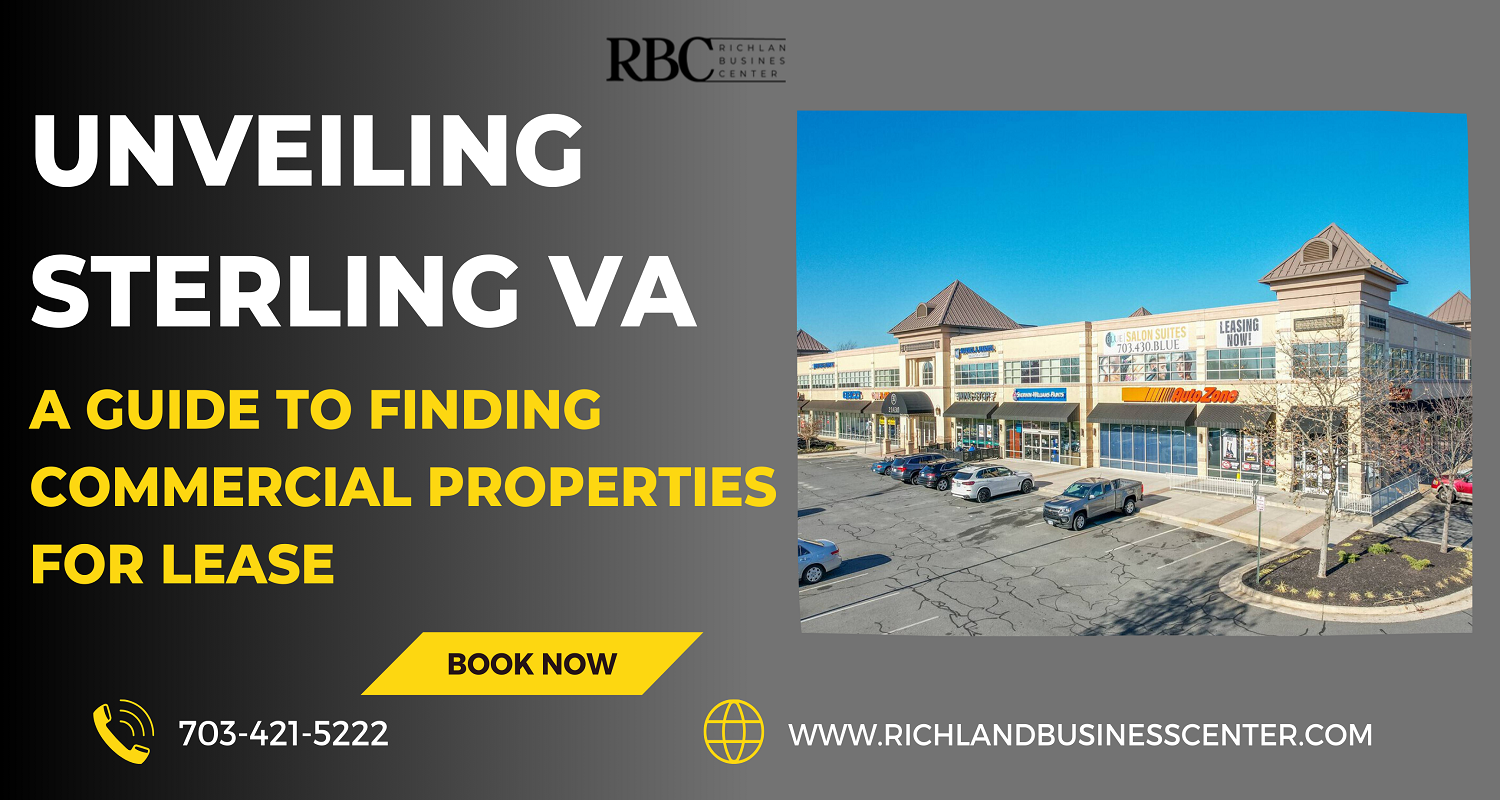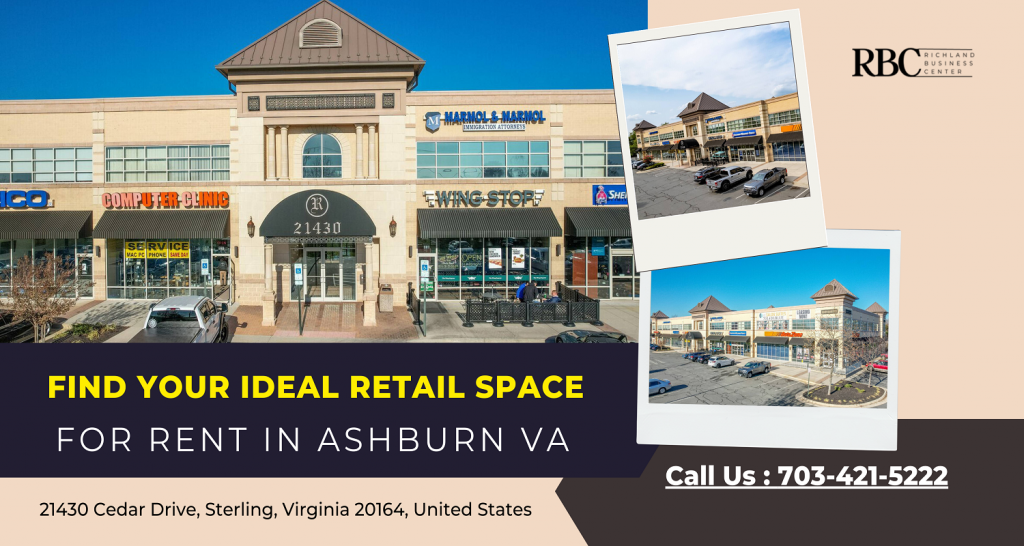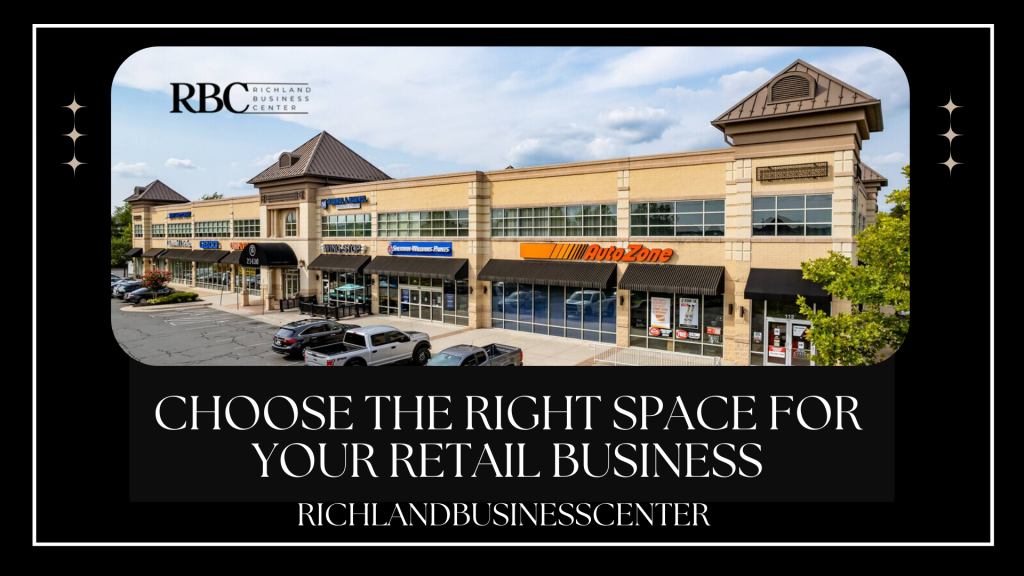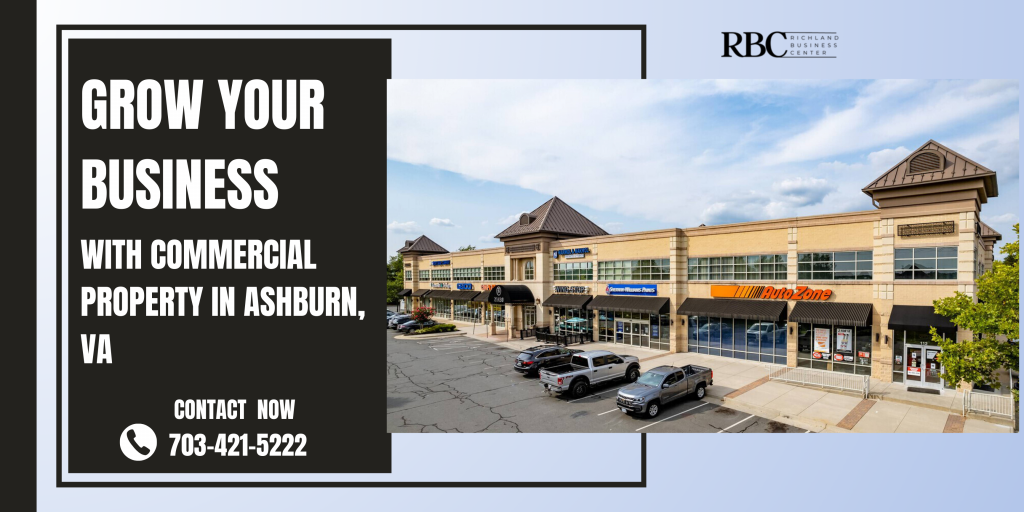Unveiling Sterling VA: A Guide to Finding Commercial Properties for Lease

Understanding Commercial Property Leasing
Commercial property leasing refers to the process of renting out space for business purposes. Unlike residential leasing, which involves renting homes or apartments for personal use, commercial leasing involves renting spaces specifically designed for conducting business activities. These spaces can include offices, retail stores, restaurants, warehouses, and industrial facilities.
Key Components:
- Lease Agreement: At the core of commercial property leasing is the lease agreement, a legally binding contract between the landlord (property owner) and the tenant (business entity). The lease agreement outlines the terms and conditions of the lease, including rental rates, lease duration, maintenance responsibilities, and any other provisions related to the use of the space.
- Lease Duration: Commercial leases typically have longer terms compared to residential leases, ranging from several months to several years. The duration of the lease can vary depending on factors such as the type of business, market conditions, and the landlord’s preferences.
- Rental Rates: The rental rate, also known as the lease rate or base rent, is the amount of money the tenant pays to the landlord in exchange for the use of the property. Commercial lease rates can be calculated in various ways, including per square foot, as a percentage of sales, or as a fixed monthly amount.
- Additional Expenses: In addition to the base rent, tenants may be responsible for paying additional expenses such as property taxes, insurance, utilities, maintenance fees, and common area expenses. These additional expenses are often outlined in the lease agreement and can vary depending on the terms negotiated between the landlord and tenant.
Benefits of Commercial Property Leasing:
- Flexibility: Leasing commercial space offers businesses flexibility to adapt to changing needs and market conditions. Unlike owning property, leasing allows businesses to adjust their space requirements as their operations evolve.
- Lower Upfront Costs: Leasing requires lower upfront costs compared to purchasing commercial property, making it an attractive option for businesses with limited capital or those looking to preserve cash flow for other business needs.
- Access to Prime Locations: Leasing provides businesses with access to prime locations in desirable areas without the substantial investment required to purchase property outright. This allows businesses to capitalize on high-traffic areas and target their desired customer base effectively.
- Professional Management: Commercial properties are typically professionally managed, with landlords responsible for property maintenance, repairs, and management tasks. This can relieve tenants of the burden of property management and allow them to focus on their core business activities.
Researching the Sterling VA Market
Finding the right business property for lease requires careful consideration of the Sterling, Virginia, market. Investigating Sterling, Virginia’s unique commercial real estate dynamics, demographic shifts, and economic climate are all part of this phase. Here is a more thorough examination of what this means:
- Market Analysis: Conduct a comprehensive analysis of the Sterling VA market to understand its current state and projected growth trajectory. This involves examining key indicators such as vacancy rates, rental prices, and market demand for various property types.
- Trends in Commercial Real Estate: Stay abreast of emerging trends shaping the commercial real estate landscape in Sterling VA. This includes monitoring developments in infrastructure, technology, and industry sectors that may impact property demand and investment opportunities.
- Demographic Analysis: Gain insights into the demographic makeup of Sterling VA, including population demographics, income levels, and employment trends. Understanding the demographic profile of the area can help identify target markets and tailor property offerings to meet specific consumer needs.
- Competitive Analysis: Assess the competitive landscape by analyzing existing commercial properties in Sterling VA, as well as upcoming developments and competitors in the market. Identify key players, their market positioning, and any gaps or opportunities that your business can capitalize on.
- Regulatory Environment: Familiarize yourself with local zoning regulations, land use policies, and permitting requirements that may impact your leasing decisions. Understanding the regulatory environment ensures compliance and minimizes potential hurdles in the leasing process.
- Economic Outlook: Consider broader economic factors such as GDP growth, employment trends, and business climate rankings to gauge the overall economic health and stability of Sterling VA. A favorable economic outlook can signal growth opportunities and market resilience for businesses leasing commercial properties.
By thoroughly researching the Sterling VA market, you can make informed decisions and strategically position your business for success in the competitive commercial real estate landscape. This knowledge empowers you to identify lucrative investment opportunities, understand market dynamics, and tailor your leasing strategy to capitalize on the unique advantages offered by Sterling VA.
Identifying Your Business Needs
Identifying Your Business Needs” is a crucial step in the process of finding the perfect commercial property for lease in Sterling, VA. Essentially, it involves taking a deep dive into understanding the specific requirements and preferences of your business. Here’s a more detailed explanation:
- Defining Your Requirements: Start by clearly outlining what your business needs from a commercial space. Consider factors such as the size of the space required, layout preferences, amenities desired, and any special requirements unique to your industry or operations. For example, a tech startup might prioritize open-plan layouts and high-speed internet access, while a restaurant might need a commercial kitchen and ample dining space.
- Budget Considerations: Establishing a budget is essential to ensure that you’re looking at properties that align with your financial resources. Calculate how much you can afford to allocate towards rent and other associated costs like utilities, maintenance fees, and insurance. It’s crucial to strike a balance between finding a space that meets your needs and staying within your budgetary constraints.
- Location Preferences: Think about the ideal location for your business within Sterling, VA. Consider factors such as proximity to your target market, accessibility for customers and employees, visibility, and the overall reputation of the area. Depending on your business type and industry, you may prioritize being situated in a bustling commercial district, close to major transportation routes, or in a more secluded area with ample parking.
- Future Growth Plans: Anticipate the future growth trajectory of your business and factor this into your property search. While your current needs are important, it’s also wise to consider whether the space you’re leasing can accommodate your business as it expands. Look for properties with flexible lease terms or options for additional space to ensure scalability and minimize the need for frequent relocations as your business grows.
By thoroughly identifying your business needs upfront, you can streamline your property search process and increase the likelihood of finding a commercial space in Sterling, VA that not only meets your immediate requirements but also sets the stage for your long-term success.
Promoting Your Business Location
Exploring Different Property Types
Available Now!
1st Floor Retail Suite 102
3000 S.F. Prime Retail with direct signage on Rt. 7. Open floor plan. Unit maybe expanded to approx. 5000 S.F. Ample storefront parking. Two Glass storefront entrances on Rt. 7 and Maple leaf Rd. Move in!
Understanding Legal Aspects
Understanding Legal Aspects is a crucial section within our guide to finding commercial property for lease in Sterling, VA. In this segment, we delve into the intricate legal framework that governs commercial leasing agreements. Here’s a deeper exploration of what this entails:
- Lease Agreements: This section elucidates the components of a typical commercial lease agreement. It outlines the terms and conditions set forth by landlords, including rent payment schedules, lease duration, renewal options, and any additional clauses that may impact your tenancy.
- Legal Considerations for Businesses: Operating a business within a leased commercial space entails various legal considerations. From zoning regulations to compliance with building codes and environmental laws, businesses must navigate a myriad of legal requirements to ensure their operations are lawful and sustainable.
- Tenant Rights and Responsibilities: Understanding your rights and responsibilities as a tenant is paramount. This includes knowing your entitlements regarding property maintenance, repairs, and alterations, as well as your obligations concerning rent payments, insurance coverage, and adherence to lease terms.
- Dispute Resolution Mechanisms: In the event of disagreements or disputes with the landlord, tenants must be aware of the available mechanisms for resolving conflicts. Whether through mediation, arbitration, or legal recourse, understanding the dispute resolution process can help mitigate potential conflicts and protect your interests as a tenant.
- Legal Documentation: Beyond the lease agreement itself, there may be additional legal documents involved in the leasing process. This could include letters of intent, estoppel certificates, sublease agreements, or guaranty agreements. Familiarizing yourself with these documents and seeking legal counsel when necessary can provide clarity and ensure that your rights are upheld throughout the leasing process.
In essence, Understanding Legal Aspects equips tenants with the knowledge and awareness necessary to navigate the legal intricacies of commercial leasing in Sterling, VA. By being well-informed about lease agreements, legal obligations, and dispute resolution mechanisms, tenants can enter into lease agreements with confidence, knowing that they are equipped to protect their interests and uphold their legal responsibilities.
Conclusion
In conclusion, navigating the realm of commercial properties for lease requires careful consideration and strategic planning. By utilizing the comprehensive guide presented here, individuals and businesses can approach their search with confidence and clarity. From understanding the key factors influencing lease agreements to leveraging effective negotiation tactics, this guide serves as a valuable resource for those seeking to secure the ideal commercial space. With a diligent approach and informed decision-making, finding the perfect property to lease in the commercial market becomes not just a possibility, but a tangible reality for aspiring entrepreneurs and established enterprises alike.

 Available Now!
Available Now!


